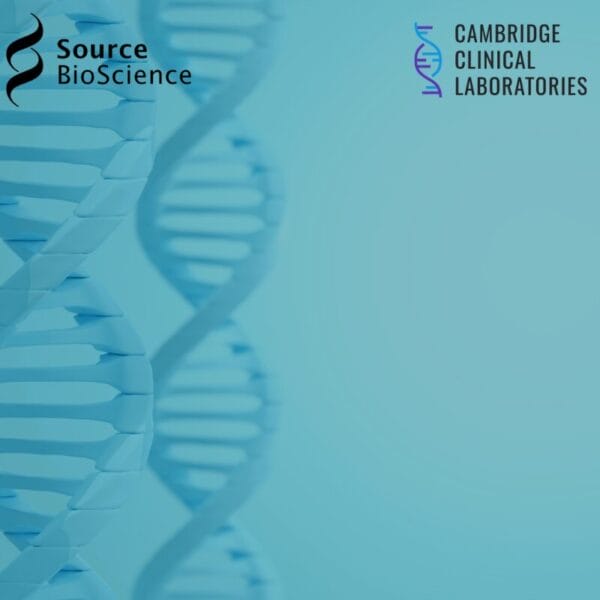How Whole Genome Sequencing Contributes to Molecular Diagnostics
Whole genome sequencing allows for faster and more precise molecular diagnosis, resulting in the development of more effective, less toxic treatments for better patient outcomes. Compared to other molecular diagnostic methods, whole genome sequencing has been proven to be the most effective and thorough technique in understanding the molecular mechanisms behind disease. As such, whole genome sequencing is now a vital tool for studying disease, making way for the genomic medicine revolution that is transforming the face of epidemiology.
Molecular diagnosis is the identification of genomic variants in DNA and/or RNA, either pathogenic and/or benign, linked to human diseases, which are then used to facilitate patient diagnosis and prognosis and monitor their response to treatment. As diseases are one of the main global threats to public health, molecular diagnosis is of paramount importance in understanding, diagnosing, and treating diseases. For example, cancer is the first or second most prevalent contributor to premature deaths in the majority of countries worldwide, and the number of cases is predicted to double by 2070.1 Genetic analysis and the discovery of genes provides us with incredibly important insights into the mechanisms behind different diseases and enables the identification of genetic biomarkers for highly accurate diagnosis, along with the assessment of disease predisposition.2
Whole genome sequencing
As diseases are caused by a wide variety and high abundance of molecular defects, detection of multiple genetic variants, as opposed to single variant detection, is required for accurate diagnosis and, subsequently, more effective treatment.2 Whole genome sequencing is, therefore, an indispensable molecular diagnostics tool and is revolutionising medical research and the treatment of human disease. The diagnostic superiority of whole genome sequencing compared to other genetic-based testing methods is widely recognised, and whole genome sequencing looks to become a first-tier molecular diagnostic test, particularly for rare genetic diseases.3
Whole genome sequencing is much more comprehensive than other molecular diagnostic tests like whole exome sequencing because a broad, diverse array of genetic variants can be detected in just a single assay. Also, because of its untargeted nature, whole genome sequencing displays a much more uniform coverage of genetic material, including regulatory regions, for example. The higher diagnostic power of whole genome sequencing facilitates faster, more accurate molecular diagnosis, resulting in the increased clinical utility of whole genome sequencing. Along with this, advancements in high-throughput techniques like next-generation sequencing means that whole genomes can be readily sequenced at a much more affordable cost. Whole genome sequencing is thus starting to become the gold standard method for disease diagnosis.
Whole genome sequencing can provide a shallow depth of sequencing to examine structural variation within the genome, while deeper sequencing gives a higher coverage to identify rare single nucleotide polymorphisms which cannot be identified using other molecular diagnostic methods. Whole genome sequencing is used to investigate single nucleotide polymorphisms, insertions, and deletions in both germline and somatic cells for disease diagnosis.
How whole genome sequencing is revolutionising today’s medicine?
Whole genome sequencing has shown particularly promising resolutions in the study of oncology. For example, whole genome sequencing was used to identify pathogenic cancer-predisposing variants in children. This then enabled the administration of more effective therapy that clinically benefited 31% of the patients.6 Here, whole genome sequencing was a key tool in revealing a comprehensive molecular profile that provided the necessary understanding of the molecular basis of virtually all high-risk cancers in these patients.6
Whole genome sequencing is now also being implemented in national health systems, streamlining diagnostics and enhancing the discovery of previously unknown genetic variants. In a recent study, whole genome sequencing of a UK Biobank was used to identify four new, non-coding variants that cause rare diseases by disrupting the transcription of specific proteins necessary for correct cell functioning.7
Conclusion
The discovery of molecular abnormalities in genetic material using whole genome sequencing is proving to be an indispensable tool in disease diagnosis and treatments. With whole genome sequencing, diseases can be identified much faster and earlier on, facilitating quicker and more effective treatment. Whole genome sequencing allows us to combat genetic diseases that were previously thought impossible, having extremely beneficial implications for human health worldwide. All in all, the contribution of whole genome sequencing to molecular diagnosis is undeniable and is reforming the study of disease.
Get in touch today to learn more about the future of precision medicine with Source Genomics. Explore advanced whole genome sequencing and molecular diagnostics solutions, and discover how Source Genomics can help you redefine genomics and diagnostics and, in turn, revolutionise personalised healthcare.
References and Further Reading
- Soerjomataram, I. and Bray, F. 2021. Planning for tomorrow: global cancer incidence and the role of prevention 2020–2070. Nature reviews Clinical oncology. 18(10), pp.663-672.
- Patrinos, G.P. and Ansorge, W.J. 2010. Molecular diagnostics: past, present, and future. In Molecular Diagnostics (pp. 1-11). Academic Press.
- Scocchia, A., Wigby, K.M., Masser-Frye, D., Del Campo, M., Galarreta, C.I., Thorpe, E., McEachern, J., Robinson, K., Gross, A. and Ajay, S.S. 2019. Clinical whole genome sequencing as a first-tier test at a resource-limited dysmorphology clinic in Mexico. NPJ genomic medicine. 4(1), p.5.
- Belkadi, A., Bolze, A., Itan, Y., Cobat, A., Vincent, Q.B., Antipenko, A., Shang, L., Boisson, B., Casanova, J.L. and Abel, L. 2015. Whole-genome sequencing is more powerful than whole-exome sequencing for detecting exome variants. Proceedings of the National Academy of Sciences. 112(17), pp.5473-5478.
- Su, Z., Ning, B., Fang, H., Hong, H., Perkins, R., Tong, W. and Shi, L. 2011. Next-generation sequencing and its applications in molecular diagnostics. Expert review of molecular diagnostics. 11(3), pp.333-343.
- Wong, M., Mayoh, C., Lau, L.M., Khuong-Quang, D.A., Pinese, M., Kumar, A., Barahona, P., Wilkie, E.E., Sullivan, P., Bowen-James, R. and Syed, M. 2020. Whole genome, transcriptome and methylome profiling enhances actionable target discovery in high-risk pediatric cancer. Nature medicine. 26(11), pp.1742-1753.
- Turro, E., Astle, W.J., Megy, K., Gräf, S., Greene, D., Shamardina, O., Allen, H.L., Sanchis-Juan, A., Frontini, M., Thys, C. and Stephens, J. 2020. Whole-genome sequencing of patients with rare diseases in a national health system. Nature. 583(7814), pp.96-102.
Contact us today and one of our skilled account managers will be in touch with a free consultation including further information and pricing details.
Share this article

